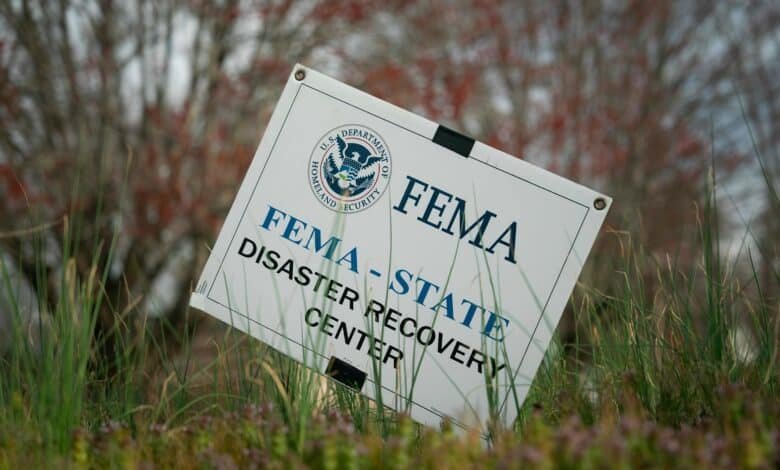The Trump administration denies the application of Hurricane Helene Relief of North Carolina at the approved Biden level

The Federal Emergency Management Agency denied the application of North Carolina for the agency to coincide with 100% of the state funds for Helene Cleanup, according to a letter sent from the interim FEMA administrator to the governor of North Carolina.
“After a careful and exhaustive review of all available information, including that contained in its initial application for an adjustment and appeal of shared costs, we have concluded that an extension of the participation of federal costs of 100 percent for the elimination of debris and the emergency protection measures, including direct federal assistance for direct federal assistance for an additional letter of the declaration of disaster declaration. Acting of the law David Richardson in the letter.
The shared cost application comes from a Biden administration directive to coincide with 100% of the funds that the State presents to the costs of disaster cleaning after Hurricane Helene devastated the State as a storm of category 4 in September 2024.
More than 230 people were killed by the storm, with at least 72 in Buncombe County, North Carolina, only in the midst of record floods throughout the west of North Carolina.

In this archive photo of March 29, 2025, there is a sign outside the FEMA Disaster Recovery Center in the FairView Public Library in Fairview, North Carolina.
Allison Joyce/Getty images, file
While visiting North Carolina in January, President Donald Trump criticized the Biden administration for what he said he was not doing enough to provide relief.
Trump said that former President Joe Biden “did a bad job” by helping the Northern Carolinians after the hurricane, saying: “This is totally unacceptable, and I will be taking strong measures.”
Traditionally, there is a shared cost model with a federal absorption of 75% of 25% costs for the states, but that was changed under the Biden administration to match the costs of 100%.
It is not clear how FEMA would divide the costs between the states and the federal government for the future disaster relief.

In this file photo of September 28, 2024, Scott Richardson examines his collapsed and destroyed house after the Tropical Helene storm, in Boone, North Carolina.
Jonathan Drake/Reuters, file
In a statement, North Carolina Governor Josh Stein said that denial will cost state residents “hundreds of millions of dollars.”
“The money we have to pay for the elimination of debris will mean less money to support our small businesses, rebuild the center’s infrastructure, repair our water and sewerage systems and other critical needs,” he said.
The financial debate occurs when the Department of National Security, which houses FEMA, weighs how to eliminate the agency and at the same time gives funds to the disasters.

In this archive photo of October 5, 2024, a resident enters the improvised FEMA station to attend claims of local residents affected by floods after the death of Hurricane Helene, in Marion, North Carolina.
Eduardo Muñoz/Reuters, Archive
In the center of the Plan is the Secretary of National Security, Kristi Noem, who has weighed how Presidential Action on January 24.
“The president has indicated that he wants to eliminate FEMA as it exists today and that the states have more control over their emergency management response,” Noem said on May 8, adding that the agency has “failed” in its mission and must be eliminated or reduced. “He wants to empower local governments and support them and how they respond to their people.”
Fema has not responded to the request for ABC News comments.
Even so, an internal FEMA review this month indicated that the agency “is not ready” for the 2025 hurricane season.
“As FEMA transforms into a smaller footprint, the intention of this hurricane season is not well understood, so FEMA is not ready,” said the review, citing personnel limitations, hiring and lack of coordination with the states when the Trump administration tries to reorganize and reduce FEMA.
North Carolina is the second state to receive a request for the help of Fema denied after the agency rejected the request of Arkansas of disaster relief when the storms and severe tornadoes arrived in the state in March.
The decision also occurs when the United States anticipates hurricane activity above average on the Atlantic coast this year, with between 13 and 19 storms with expected names.





